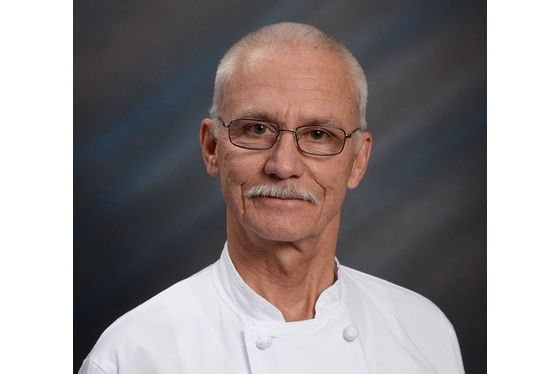In an on-demand culture, hotels are eager to ditch inefficiencies plaguing F&B (“F&B’s new buffet mandate: Speed up, shrink waste”). Part of that is considering scaling back buffets to reduce waste but not taste. Hyatt Hotels’ Larry Eells says the buffet needs an update to provide what guests want, quickly and with quality, emphasizing choice while eliminating waste. It’s proving a tough sell for some customers, he says.
Eells was interviewed by HOTELS when he was executive chef at the Hyatt Regency Orlando. Last week, the company announced that he will become executive chef at the Hyatt Regency Indian Wells Resort & Spa in Indian Wells, California.

HOTELS: Your hotel recently partnered with design firm Ideo to majorly streamline its buffet offerings. Other than the percentage of food being wasted (47%), what else surprised you?
Lawrence Eells: The liquid component, it’s something we really didn’t think about at first. We were all thinking about solid waste and I think the liquid component is going to be equally important. It’s going to be a surprise how many gallons of really expensive product is being discarded.
H: The streamlined buffet concept: Is getting guests on board with this just a matter of sticking to your lane? How do you overcome guests’ expectation of seeing this big, beautiful buffet?
LE: It’s about communication, and I think more and more our corporate guests are going in that direction anyway – there’s a recognition that sustainability is important. I think sometimes our transient guests and our families may not be as quick to change their views or their dining habits.
So I think it’s a couple things: Ideo really gave us some great written pieces and now we just have to operationally figure out how we’re going to put those out, whether it’s at the front desk or whether it’s at the restaurant, whether it’s on our buffets, whether it’s with our meeting planners. And I think really the biggest impact will be with our meeting planners.

H: What’s missing in the buffet space right now? Any forward-looking trends you’d like to experiment with?
LE: I’d like to get away from buffets altogether and go more with stations. Food stations, action stations, themed stations — kind of like miniature food hall themes for all of our buffets so that people can go directly toward the kind of food they’re interested in and enjoy.
When you feed large amounts of people and you only have limited time, buffets are the most practical, and when you’re trying to meet the needs of a lot of different people all at the same time, buffets are the way that everyone has decided to do that. I just think buffets are so inherently wasteful they have to go away.
H: How do these changes affect you from an operations standpoint?
LE: On busy days, of course, there is a need for more management of the buffet. Also, the servers now, where normally they can just drop a check, the guest now needs to order the pancakes if they want pancakes. We do them a la carte in the kitchen. If they want a smoked salmon plate, if they want a small charcuterie plate, the servers now will have to take that order and go back to the kitchen and have the chefs prepare it for them. So there’s a little more labor on the culinary side, there’s a little more effort by the servers both explaining what the offerings are and delivering them, but the customer is getting a much fresher product, they’re getting exactly what they want, they’re getting an appropriate portion – and at the end of the day there’s nothing going in the garbage.
So yeah, there’s a little bit of a trade off with labor, but we really want to try and keep the buffets fresh and in good state of replenishment anyway, so that’s fine. That’s really an upside more than a downside.
H: What’s keeping industry on the whole from making these same changes?
LE: A lot of hotels probably are doing a good job at this because there is a financial incentive and it’s just not being recognized. But it’s the very, very large, busy hotels like ours that sometimes take their eye off the ball. And I think we fear that we’ll be perceived as being a little bit stingy or people will complain they don’t have enough options. In fact, we get comments from guests who stay and eat at other brands and other buffets who complain that there’s not this huge bountiful display.
We are clean, streamlined, we have what we think of as a very good value, high-quality presentation, but there are a lot of customers who want a bang for their buck. They want to see volume, they want to see copious amounts of food everywhere, and I think that’s something we’ve got to kind of get away from.
